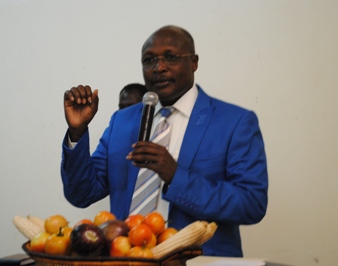E. Equatoria holds conference on natural resources management
By Ijoo Bosco
October 1, 2014 (TORIT) – South Sudan’s Eastern Equatoria state held a one-day conference on Tuesday on how best to harness the region’s natural resources for the economic benefits of its citizens.

State governor Louis Lobong Lojore used his opening speech to call for concrete resolutions to meet the urgent needs of communities in the state.
Lojore also called on the current government to a leave a lasting legacy of positive change for future generations in the state.
“We should continue to do what is good, so that we can change the lives of the people of this state, counties, payams and bomas (districts) for the better,” he said.
“We must leave a legacy, so that we can be remembered tomorrow for making positive change in our beloved state,” he added, saying that he had strived to provide better services for the people of Eastern Equatoria since he was elected, but various challenges had made the task difficult, including a lack of resources and poor security.’
Lojore further noted that poor infrastructure and instability outside Eastern Equatoria state continued to deprive South Sudanese people of the benefits of the country’s rich natural resources.
He urged local community to organize themselves and make use of the resources that Eastern Equatoria state is endowed with, lamenting the lack of development in the sector due to exploitation and the failure to utilize resources for optimal benefit.
“I heard recently in our bushes in Kapoeta [that] there are foreigners roaming in the bushes, collecting gold [and that] they have the machine [for] detecting gold while the indigenous people don’t benefit from it,” Lojore said.
He said the conference is the first such initiative to bring stakeholders together in order to explore ways of how to use natural resources for the sustainable development of the state and the benefit of its citizens.
The state’s 2012-2015 strategic development plan defined Eastern Equatoria as having abundant natural resources that could meet the basic needs of its people and be utilized for further development.
(ST)
